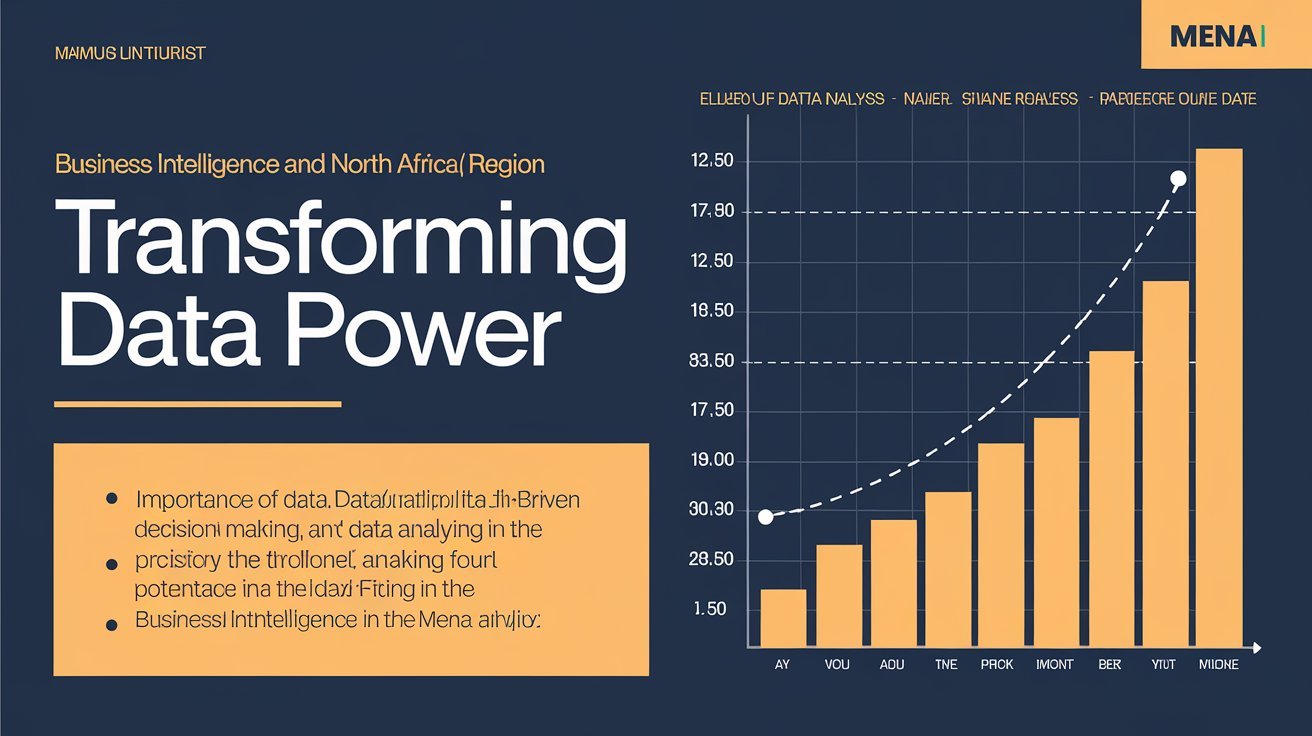In the ever-evolving landscape of the Middle East and North Africa (MENA), businesses are increasingly recognizing the transformative potential of data. Business Intelligence in MENA has emerged as a critical tool, enabling organizations to harness the power of analytics, insights, and foresight. With the region rapidly becoming a hub of innovation and entrepreneurship, BI solutions are helping enterprises navigate challenges, capitalize on opportunities, and stay ahead of the competition.
The Rising Need for Business Intelligence in MENA
MENA’s economic ecosystem is diverse, ranging from oil and gas giants to burgeoning tech startups. This diversity, coupled with the growing emphasis on digital transformation, has driven the demand for Business Intelligence (BI) solutions. Governments across the region are also playing a pivotal role by initiating data-driven projects, such as Saudi Arabia’s Vision 2030 and the UAE’s Smart Dubai initiative, aimed at building knowledge economies.
For businesses, the challenge isn’t just collecting data but deriving actionable insights from it. BI tools enable companies to make data-driven decisions, ensuring precision in strategy formulation and operational execution.
Key Benefits Driving Adoption
Enhanced Decision-Making
In a region characterized by rapid change, intuitive decision-making is no longer sufficient. BI platforms aggregate and analyze data, presenting it in digestible formats like dashboards and reports. This empowers decision-makers to rely on facts rather than instincts.
Operational Efficiency
By identifying inefficiencies and streamlining workflows, BI tools enhance productivity. For example, retail businesses in MENA use BI to optimize supply chains, reducing costs and ensuring timely deliveries.
Customer Insights
With customer behaviors evolving, especially post-pandemic, understanding preferences has become critical. BI provides businesses with granular insights into customer journeys, enabling personalized marketing and improved service delivery.
Risk Mitigation
BI systems are invaluable for identifying potential risks, such as market volatility or supply chain disruptions. These tools equip businesses with predictive analytics, allowing them to devise proactive strategies.
Sector-Specific Impact of Business Intelligence
Oil and Gas
The oil and gas sector remains a cornerstone of MENA’s economy. BI tools are revolutionizing this industry by optimizing exploration, refining processes, and monitoring market trends. Real-time data analysis aids in cost control and enhances resource allocation.
Healthcare
In healthcare, BI solutions facilitate better patient care through data integration and analysis. Hospitals in the UAE and Saudi Arabia, for instance, use BI to manage patient records, predict disease outbreaks, and streamline administrative tasks.
Retail and E-commerce
With the region’s e-commerce sector growing exponentially, BI tools are helping businesses understand consumer behavior, predict demand, and curate personalized shopping experiences.
Finance and Banking
Financial institutions rely on BI for fraud detection, customer segmentation, and investment analysis. In a competitive market like MENA’s, where fintech is thriving, BI ensures informed decision-making.
Challenges to Overcome
Despite its advantages, the adoption of Business Intelligence in MENA comes with challenges:
- Data Silos: Many organizations struggle to integrate disparate data sources, limiting BI’s effectiveness.
- Skill Gap: The lack of trained professionals capable of leveraging BI tools hampers full-scale adoption.
- Cost Barriers: Advanced BI solutions can be expensive, posing a hurdle for SMEs.
- Cultural Resistance: Shifting from traditional decision-making to data-driven approaches requires a cultural change within organizations.
The Future of Business Intelligence in MENA
As the region continues to embrace digital transformation, the future of BI looks promising. Key trends to watch include:
AI and Machine Learning Integration
The integration of AI with BI will enable predictive and prescriptive analytics, taking decision-making to the next level.
Cloud-Based BI
Cloud solutions are gaining traction for their scalability, cost-effectiveness, and accessibility, making BI tools more accessible to smaller businesses.
Focus on Real-Time Analytics
With industries like logistics and retail requiring instant insights, real-time analytics will become a standard feature of BI platforms.
Sector-Specific Customization
Tailored BI solutions will emerge, addressing the unique needs of sectors like tourism, education, and renewable energy.
Conclusion: The Strategic Imperative of BI
The rise of Business Intelligence in MENA marks a turning point for the region’s enterprises. By transforming raw data into actionable insights, BI empowers businesses to thrive in an increasingly competitive and data-driven world. Whether it’s predicting market trends, optimizing resources, or understanding customers, the strategic value of BI cannot be overstated.



